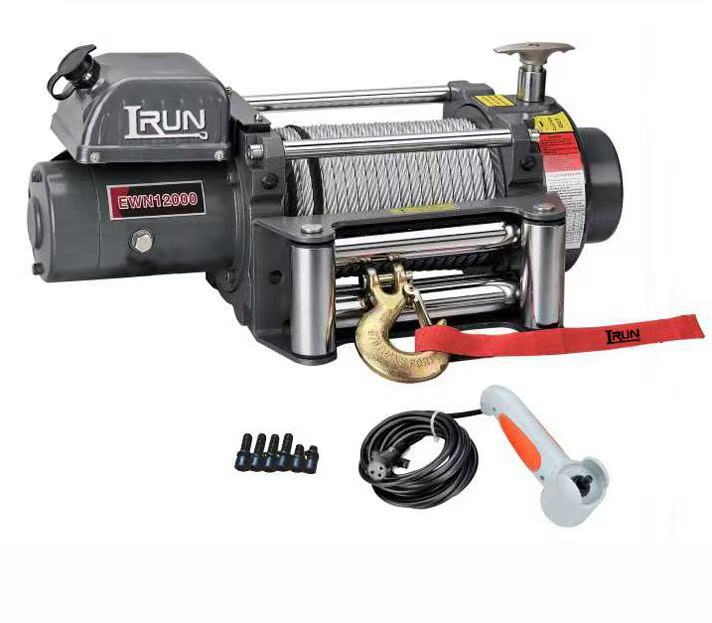Hydraulic 4wd Winches are a powerful and reliable solution for off - road enthusiasts and professionals who require high - performance recovery and heavy - duty pulling capabilities for their four - wheel - drive vehicles. These winches are designed to withstand the rigors of extreme off - road conditions and provide consistent, robust power for a variety of demanding tasks.
How Hydraulic 4WD Winches Work
Unlike
Electric Winches that rely on a vehicle's battery, hydraulic 4WD winches draw power from the vehicle's hydraulic system, typically connected to the power steering pump or a dedicated auxiliary hydraulic pump. The hydraulic system generates pressure, which is then transferred to the winch motor. This pressure drives the motor, which in turn rotates the drum around which the winch cable or rope is wound. As the drum rotates, it either pulls in or pays out the cable, allowing the winch to exert a pulling force on the load.
The hydraulic system provides a smooth and continuous flow of power, enabling the winch to operate steadily under heavy loads. This consistent power delivery is a significant advantage over electric winches, especially in long - duration winching operations or when dealing with extremely heavy and stubborn loads. For example, when extracting a 4WD vehicle stuck deep in thick mud or sand, a hydraulic winch can maintain a constant pull without the risk of overheating or losing power due to battery drainage, as is sometimes the case with electric winches.
Advantages of Hydraulic 4WD Winches
One of the most significant benefits of hydraulic 4WD winches is their high pulling capacity. They are capable of generating substantial pulling forces, often far exceeding those of many electric winches. This makes them ideal for heavy - duty 4WD vehicles, such as large trucks, military vehicles, and heavy - modified off - road rigs. In industrial applications where 4WD vehicles are used for towing heavy equipment or in construction and mining operations, the high - torque output of
Hydraulic Winches ensures efficient and reliable performance.
Another advantage is their durability and reliability. Since they are powered by the vehicle's hydraulic system, they are not as vulnerable to electrical issues that can plague electric winches. For instance, in wet or muddy off - road conditions, electric winches may suffer from electrical shorts or reduced performance due to moisture, but hydraulic winches are less affected. Additionally, hydraulic winches can operate continuously for extended periods without overheating. This is crucial in situations where multiple recovery attempts are needed or when the winch is used for long - term, heavy - load pulling tasks.
Hydraulic 4WD winches also offer smooth and precise control. The hydraulic system allows for a more gradual application of power, enabling operators to have better control over the winching process. This is particularly important when dealing with delicate recovery situations, such as when rescuing a 4WD vehicle that is precariously balanced on a slope. The ability to control the speed and force of the winch with precision reduces the risk of causing further damage to the vehicle or the surrounding environment.



